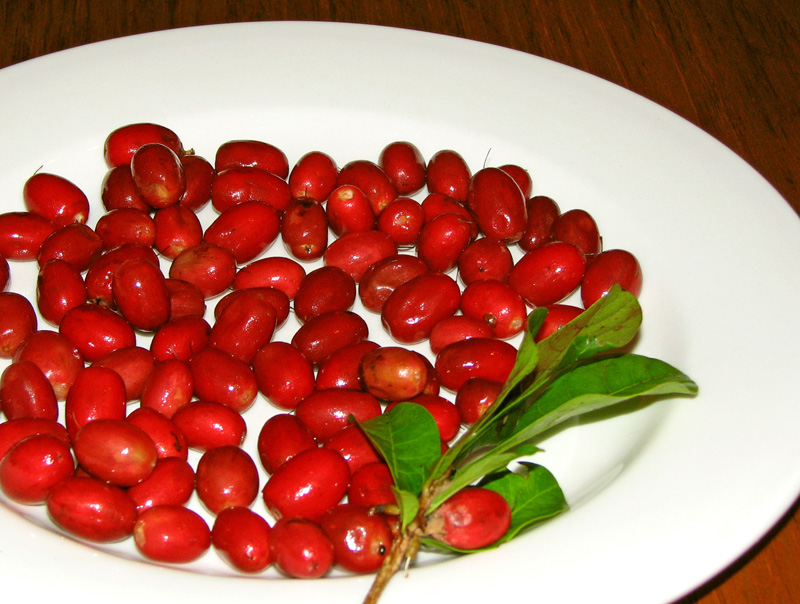The miracle berry fruit is a small red fruit orginally grown in Africa. The active ingredient in the Miracle Berry Fruit is called miraculin which has the ability to change the tasting properties of the tongue making sour, acidic and bitter foods taste sweet.
We all know what happens when we eat a slice of a lemon... our faces start to pucker up and all we taste is SOUR.
While listening to the presenter, he asked for several teachers to volunteer in the "Tricking Your Tastebuds" experiment. Unfortunately, I wasn't chosen, however, myself and the other unlucky teachers were still able to witness the "miracle" of the berry by seeing first hand the faces and then hearing the responses of the volunteers. Because the shelf life on the miracle berry fruit is only 1 - 2 days after harvesting, the presenter gave each of the participants a Miracle Berry Tablet. The all-natural tablet contains the freeze dried extract from 3 whole miracle berries preserving the active ingredient miraculin. The participants placed the tablet into their mouths and let it dissolve. In order for the miraculin to work properly the tablet can not be chewed ---the tongue must be coated so that the taste bud receptors responsible for sour, bitter, and acidic flavors are blocked. While waiting the 5 minutes or so, I conversed with the teachers around me to get their thoughts and learned that one FACS teacher has already done this experiment with her students after learning about it while watching an Episode of "Future Food" on Planet Green. The hosts of this show, Homaro Cantu and Ben Roche, are world renowned chefs at MOTO, a restaurant tucked among the loading docks and 19th century warehouses of Fulton Market, Chicago's lively meatpacking district. In the episode "Future Food", the team at MOTO came up with several dishes to try out on their diners, using plants, cactus, flowers, and weeds that are never eaten because of their bitter components. The dishes that were created were concentrated, highly-nutritious, but of course horrible tasting. The diners will presented with the Miracle Berry Fruit then ate the same dishes prepared with grass, flowers, and weeds as before... and ta-da, the diners now had a palatable, nutritious dish since their taste buds were altered from bitter to sweet. Pretty cool, huh? However, I never saw the episode, nor did I ever hear of this miracle berry, so being the sceptic I am, I wanted to see it with my own eyes...
The five minutes passed...the miracle berry was dissolved in the participants mouths and they were presented with three fruits that we always associate with sourness: Lemon, Grapefruit, and Lime. First up the lemon, each of them ate it --- NO PUCKERING... and the response "it tastes like a sweet cup of lemonade"...and guess what else, they even ate the RIND... if you have ever zested a lemon, you know that you only zest the "yellow" because as soon as you hit the white you are going to make your dish extremely bitter! They ate the grapefruit --- same results, and then the lime --- and all reported that they never tasted such flavor and sweetness in the lives.
Well, there you have it... the ability to turn those sour, bitter, usually undesirable foods into sweet, palatable dishes. I think this would be a great lesson to do with my students after teaching about the essential nutrients... many times the sour fruits are avoided but they are loaded with Vitamins, the rind full of fiber, and of course it is hands on!
So far people who have used the Miracle Berry fruit tablets have reported that Guinness tastes like a chocolate milkshake, tomatoes taste like peaches, and rhubarb is irresistibly sweet.


No comments:
Post a Comment